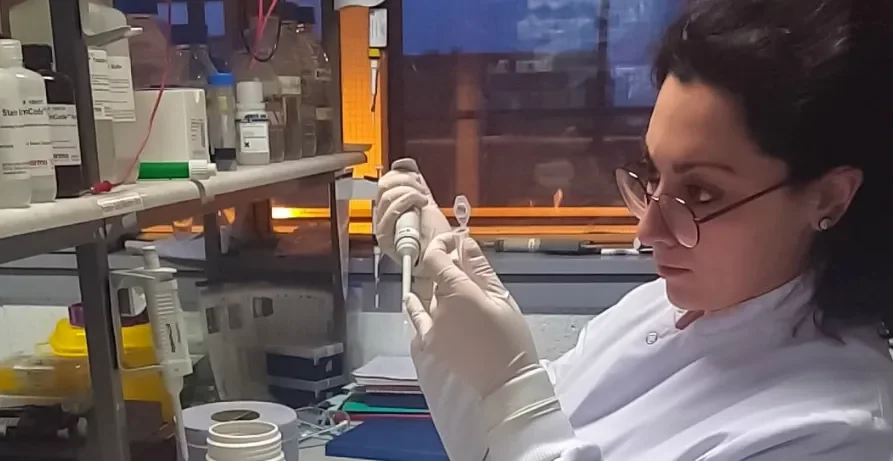

Folate Metabolism in Health and Disease - Allergan Innovation Award 2020
The winner of the Allergan Innovation Award 2020 is postgraduate researcher Paola Drago of the Parle-McDermott Group.
Each year Allergan Pharmaceuticals generously gifts bursaries to the Higher Education Institutions around Ireland to then award and support scholars who have excelled through innovative research in the field of life sciences.
Through a competitive process, the School of Biotechnology have awarded school member Paola Drago the 2020 awardee for her work examining the intricacies of folate-medium one-carbon metabolism in health and disease.
‘Folate-mediated one-carbon metabolism (FOCM) is an intricate metabolic network which acts as a hub for many fundamental cellular pathways’, explains Paola, ‘natural or synthetic forms of folate, which this network uses for cell health, enter this network via an enzyme called dihydrofolate reductase, ergo, this enzyme is critical for the maintenance of this network, and in turn normal cell function’.
‘Recently, a second form of this enzyme; DHFR2, has been discovered but its role in this paradigm has not yet been fully elucidated. This is complicated by the fact that the enzyme’s role may lie in the genetic space, as an endogenous form of DHFR2 protein has yet to be detected. My project involves looking at different transcript forms of the DHFR2 gene, with an emphasis on non-coding RNAs’.
Long non-coding RNAs are recognised as having an influential role in regulating the processes that preserve the life of a cell. As such researchers have studied how changes in the levels of long non-coding RNAs correlate with incidence of disease with specific variants shown to promote complex pathologies in the neurological and cardiovascular categories in addition to certain forms of cancer.
‘My project is currently examining how DHFR2 may regulate other enzymes in the FOCM pathway and potentially neighbouring genes such as NSUN3, which itself has been shown to be involved in the functionality of the mitochondria, and in turn, the nervous and muscular systems. Understanding this relationship between the DHFR2 enzyme, NSUN3, and FOCM could represent an effective therapeutic tool in next generation treatments of diseases’.
When asked how the Allergan Innovation Award will make a change to her project:
‘In order to truly scrutinise the role of DHFR2 we made sure the scope of our study had representative samples from a number of different systems and human tissues. This award will enable us to conduct a comprehensive screening for long non-coding RNAs across the sample library we have generated in our mission to understand the relationship between our targets.
The School of Biotechnology extends our congratulations to Paola, and her supervisor Prof. Anne Parle-McDermott, and their award success.
